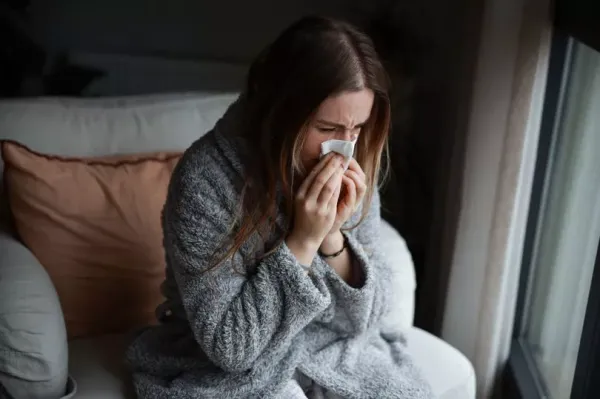
A common cold symptom could also signify that you're suffering from long Covid. Generally, people will recover from a coronavirus infection within a few weeks after symptoms first appear.
However, guidance from the NHS highlights that some people can be afflicted with a more serious illness and their symptoms can occur for much longer. Long Covid, otherwise known as post-COVID syndrome, is typically diagnosed when the symptoms of a Covid infection last longer than 12 weeks.
Full details of the illness are still not clear, with the NHS noting that it's a new condition that is still being studied. Long Covid can be harder to identify for some as the symptoms can vary from person to person.
- 'My neighbour keeps reporting my car as abandoned and it's driving me mad'
- Pretty UK town that's 'one of the poshest' is the best place for a staycation

Symptoms of long Covid can vary significantly and many people may mistake many of these symptoms for a common cold or flu. For example, a sore throat and runny nose could signify that you either have a cold or long Covid, depending on how long you've been experiencing the symptoms.
Other symptoms can include:
- Problems with your memory and concentration, also called brain fog
- Shortness of breath
- Joint pain and aching muscles
- Feeling extremely tired (fatigue)
- Losing your hair and getting skin rashes, such as hives
- A blocked or runny nose
- Headaches, feeling dizzy and vertigo
- Pins and needles, and aches and pains in different parts of your body
- A cough
- Tummy pain and diarrhoea
- Feeling or being sick, losing weight and not feeling like eating
- Difficulty sleeping (insomnia)
- A high temperature
- Changes to your senses, such as problems with your vision, earaches, hearing ringing sounds inside your ear (tinnitus), and differences in your sense of smell or taste
- Anxiety and depression
- A sore throat
- Sudden confusion (delirium), especially in older people
- Chest pain or tightness and noticeable heartbeats (heart palpitations)

Because long Covid can have a wide array of symptoms, it is first advised that you speak to your GP if you suspect you have it. Typically, a GP will ask you about your symptoms and how long you've had them to help with a diagnosis.
Your GP may also decide to carry out a number of tests to rule out other causes of your symptoms, such as a blood test. They may also measure your heart rate and oxygen levels in your blood.
You could also be referred to undergo further tests such an ECG or an X-ray. In some cases, this may be carried out by a team of specialists at a post-COVID syndrome service.
Further details on NHS advice surrounding long-Covid can be found here.
-
UPSC CDS 2 Results 2025: UPSC will soon announce the CDS 2 exam results. When will they be released? Learn how to check..

-
Diwali Gift for Government Employees: Major Overhaul in CGHS Rates, New Prices Effective from October 13

-
CSBC Bihar Constable Vacancy 2025: Applications for Bihar Constable and Jail Warder posts begin today, 12th pass candidates can apply..

-
Just one missed call and then...why did EPFO issue this number 9966044425? Hours of work can be done in seconds..

-
Gold for Diwali: If you are planning to buy gold on Diwali, then apart from hallmark, definitely check this..
